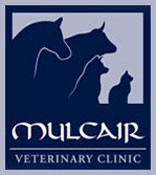Vaccination is important to protect our dogs from infectious diseases. We recommend a course of two injections 2 -4 weeks apart from 6 weeks of age. The second injection should be given from 10 weeks of age. It is essential to get annual booster vaccinations to maintain resistance as adults. Please Contact Us for an appointment for vaccinations.
When should we vaccinate our pup?
Puppies should begin vaccinations between 6 and 10 weeks of age. A second injection completes the course. This is given from 10 weeks of age and must be 2 – 4 weeks after the first injection. Older dogs can be vaccinated at any age with two injections 2 – 4 weeks apart.
It would be very unwise to let your unvaccinated puppy have access to areas visited by other dogs who might not be vaccinated, so keep him in the house or an enclosed garden. Thereafter annual vaccinations are nearly always essential to maintain immunity. We recommend that all dogs have a vaccination which includes protection against the following life threatening diseases:
What diseases do we vaccinate our dogs for?
Parvovirus Of all these diseases, Parvovirus constitutes the main threat, causing an often fatal gastroenteritis. The virus is widespread and can live on footpaths and in soil for several years. We regularly need to treat unvaccinated dogs suffering from this disease. The cost of treatment is high (min €200) and a proportion of dogs die despite the best treatment.
Distemper Distemper is less common and causes a range of symptoms including respiratory and nervous system disease. Severe vomiting and diarrhoea progress to pneumonia and finally seizures which usually lead to death. Currently there are no significant outbreaks in Ireland.
Infectious Canine Hepatitis This virus causes liver inflammation which can lead to irreversible liver failure. It is fairly uncommon in Ireland, but still exists and is potentially fatal.
Leptospirosis This bacterial organism can be commonly contracted from the environment, especially around waterways and areas exposed to rat urine. Leptospiral infection can cause acute kidney and liver failure. It may be transmitted to humans where it can cause a very serious infection called Weil’s disease.
Certain Respiratory Diseases Several infectious organisms are capable of causing respiratory disease in the dog. This can vary from relatively minor cold-like symptoms to more serious airway or lung disease. Vaccination offers protection against viral respiratory pathogens.
Coronavirus Coronavirus is one cause of infectious diarrhoea in dogs. This infection is prevalent in the canine population and can cause serious illness especially in puppies.
Kennel Cough Intra-nasal Kennel Cough vaccination confers immunity to one of the organisms responsible for ‘Kennel Cough’, the bacterium Bordatella Bronchiseptica. Vaccination is recommended at least a week prior to entering kennels.
Rabies If you are intending to travel abroad with your dog you are required to vaccinate against rabies. Please see EU Pet Passport for further important information.
Should we vaccinate our pets at all?
It’s worth remembering that many of the pet diseases we vaccinate against are killers. Whereas a child with mumps will almost certainly get better, a non-vaccinated dog that contracts parvovirus can easily die. Only vaccination can prevent these diseases in animals exposed to infection.
But are these diseases still a threat?
Vaccination has dramatically reduced the frequency of most of these diseases, but – unlike, say, smallpox in humans – none has been eradicated altogether.
Are annual boosters really necessary?
Yes, annual boosters are necessary.
Can my pet be vaccinated if he/she is unwell?
Only healthy animals should be vaccinated. Therefore, our vet will thoroughly examine your pet prior to vaccination. Routine health checks can often mean early detection of disease.
Do I need a certificate of vaccination?
On completion of your pet’s primary course, you will be given a certificate providing a record of vaccination and advising when the next booster is due. Boarding kennels, catteries and training classes will almost certainly require this before accepting your pet. Remember to take this certificate to the clinic when your pet has been vaccinated so that it can be updated.
Do vaccinations cause more illness than they prevent?
As with any medicinal product, whether for human or animal use, an adverse reaction is possible. But serious adverse reactions are exceptionally rare. Pet vaccines are tested thoroughly for both safety and efficacy. Vaccination is something we recommend simply because it offers a significant health benefit: it protects your pet from serious illness.

